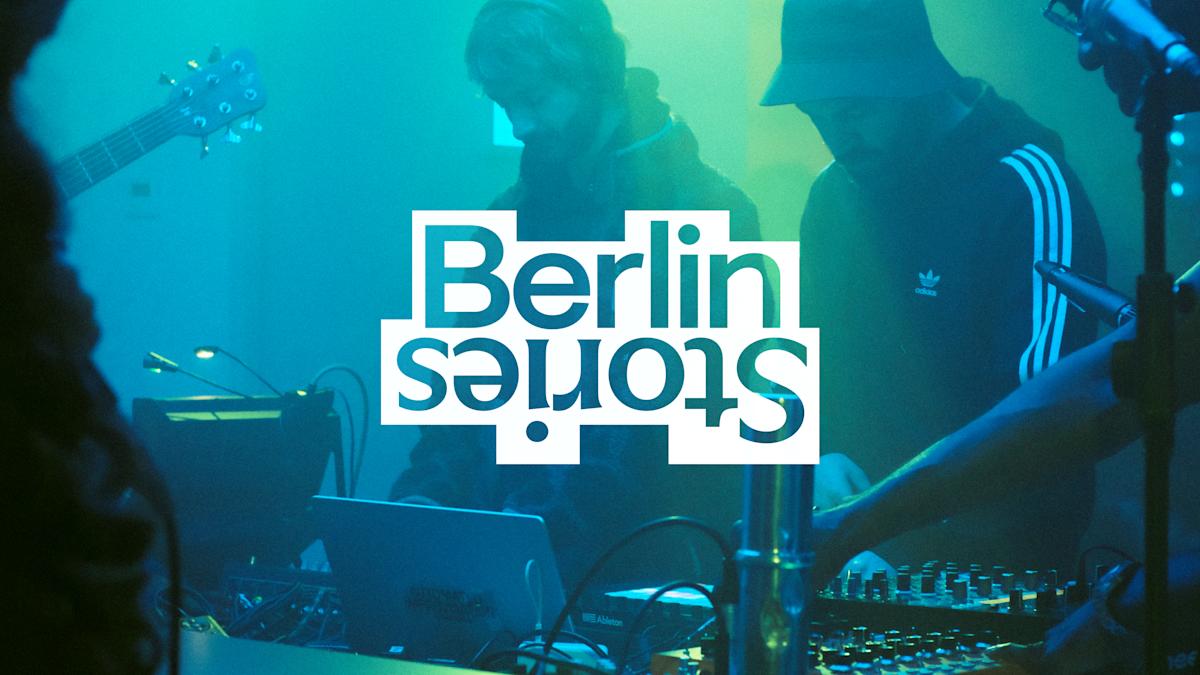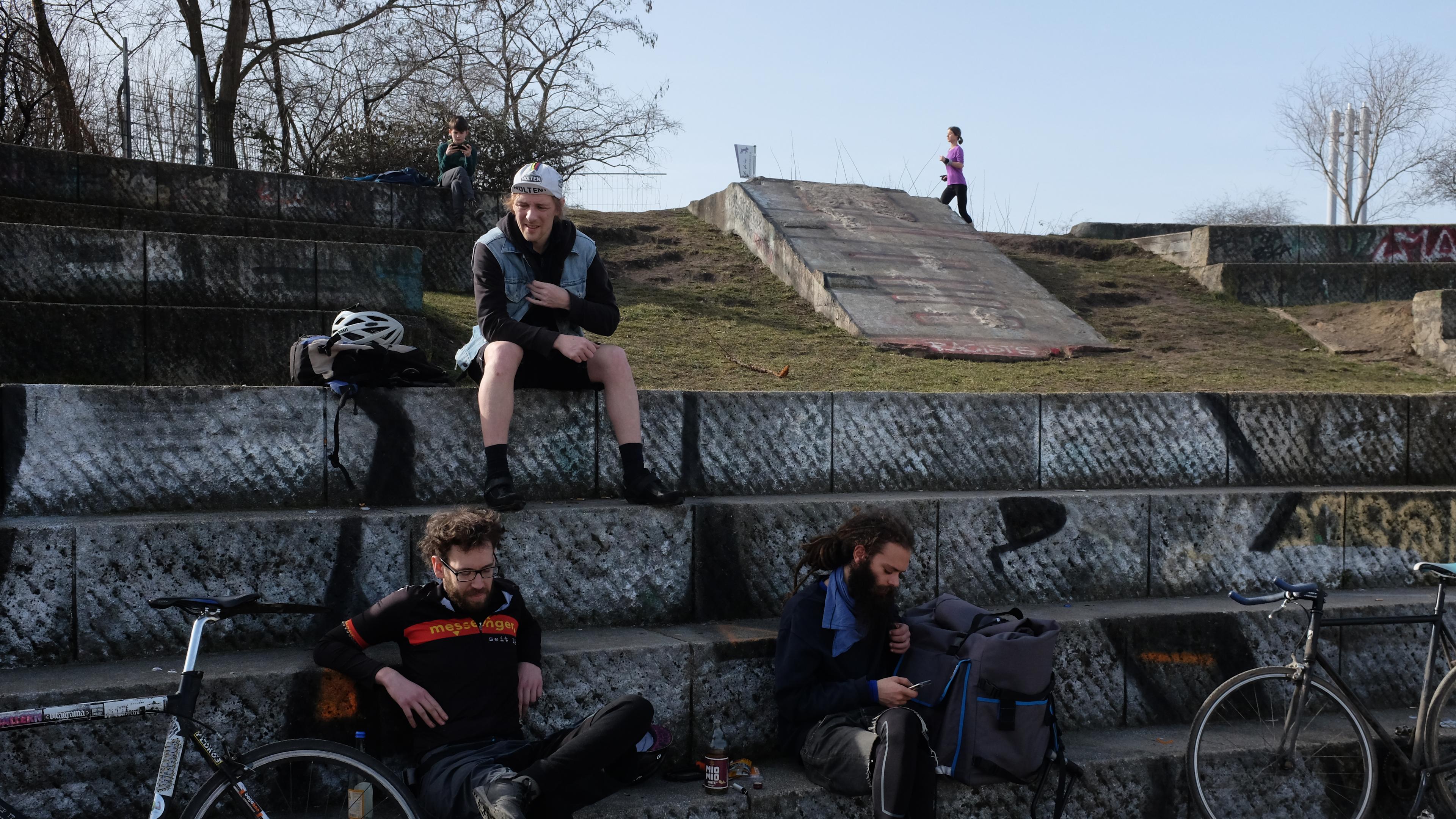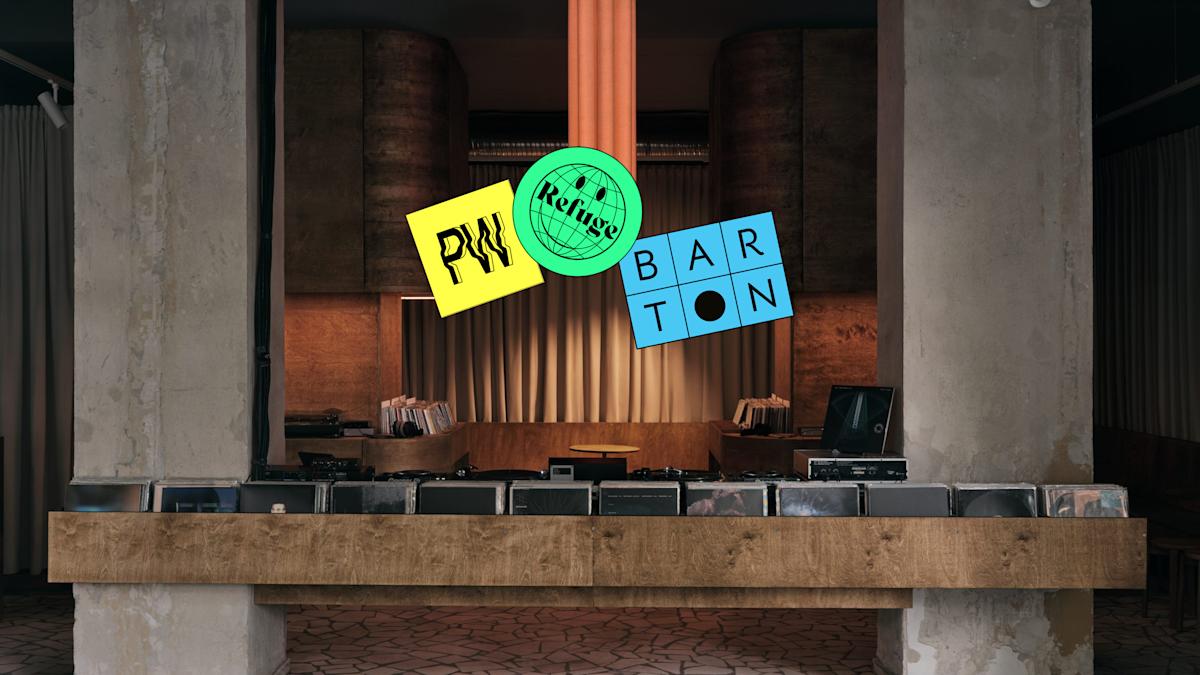
Berlin Stories
This week: Black history month, fusion soundscapes, soli kufa
Loading

How Khora delivers ethical, zero-waste food with a non-hierarchical business model.
By Steindór Jónsson
The streets of Berlin are flooded by branded delivery riders bringing food orders to people across the city—but Khora Collective is doing things differently.
The “delivery wars” in Berlin have not been lost on anyone who lives in the city. Two major companies, Deliveroo and Foodora, disappeared in 2019, leaving Lieferando as the presumed winner. Fueled by startup capital, new corporate services like Wolt and Gorillas started springing up in the wake of the pandemic lockdowns, fighting for the throne.
Khora, a co-operative delivery company owned by its riders, is a foil to these big businesses. With a focus on zero waste packaging and collective, non-hierarchical corporate structures, their riders are also their own bosses, and everyone is involved in decision-making.
Refuge Worldwide sat down with the co-op members Anderson and Critters—both of whom requested to be mentioned by first name only—to discuss the structure of the company and how collective practices can provide more sustainable, cooperative, and environmentally-friendly alternatives for the city's burgeoning food delivery industry.
Can you tell me about Khora, the structure of the company, and how it’s been going so far?
Anderson: At Khora, we try to work without hierarchies, which is not always easy. Some people are more informed on some issues, but we try to keep the hierarchies as low as possible. We make decisions by consensus in a general plenary every two weeks. Like every company we are organized in different areas—we call them Arbeitsgruppe —like marketing, media, restaurant relationships, bookkeeping. Similar to most companies. We have a core of 12 people who bring a lot of energy to the organization. Then there are another 12 people who are less involved and only do the riding. The whole co-op project is owned by the core members.
Critters: The other ones help us in the street by riding, but can’t vote in the plenary. They’re welcome to come and share their ideas, but they’re less involved. Some people have less time and just want to ride with us, which is cool.
Is there a pathway for people to join the core? And a way out for those who want to leave?
Anderson: For sure. It’s super uncomplicated. The only rule for core members is that you have to bring in 20 hours of your time per week. It can be either organization work or riding.
Critters: It’s to show that the commitment is there, to show you care.
Anderson: We’ve had high fluctuation in members and tried to figure out why that was happening. We recognized that we had a huge disparity in who was doing the organizational work and who wasn’t. Without that work, the whole project can’t run because someone has to manage it. Especially if there’s no boss or management doing it. To balance it more we tried to encourage people to get more deeply involved.
Critters: There are so many subjects and not enough hands. If you’re with a regular company like Wolt, you just jump on a bike for 8 hours and then you’re free. We need people to find restaurants, answer emails and such. Somebody has to do it and it’s a matter of balance.
This sounds like a classic challenge for collective projects: the need for communication and sharing the burden. I would assume it’s an ongoing process to make it work?
Anderson: Totally. I think we’re in a good way now. A year ago when I joined, in winter and in lockdown, it was all on the shoulders of three people. There were more people involved, but fewer doing the management. The people at the top could get burned out and then Khora would fall because no one else had the knowledge to replace them. Now it’s much better with more people involved, not super deep, but enough to share the work. Ideally everyone would do an equal share of the organizational work, because it’s unpaid. We don’t have a boss, which on one hand means that we have more money to share with the riders, but on the other, the things a boss would do need to be done by all of us.
Do you make any effort to make this process more fun and less of a chore?
Anderson: Well, every member can pick a responsibility on their own, so no one is forced into a direction where they won’t feel comfortable. On the other hand, it’s work, and there’s always aspects that suck. I hate customer service myself, but as part of the team I have to deal with it.
I guess that’s what happens with every job.
Anderson: Yes. “Life is no pony farm” as we say in Germany.
Critters: We also try to get people to write down all the work they do on a shared sheet so we can estimate when we’ll be able to pay for this extra work. We will get there at some point. It’s been a short time and so much has happened already. Also, on August 17 it was Khora’s second birthday, so we closed down the platform for one day so riders can participate in the Alleycat bike race. I’m not sure if you’re familiar with it.
Anderson: It’s not a super legal thing.
Critters: It’s a street race with checkpoints and whoever collects all of them fastest wins.
Anderson: At every checkpoint you need to complete a task.
Critters: You really need to know the best shortcuts and get a nice flow. It’s street knowledge.
Have you been involved in collectives like this before?
Anderson: I was into some collectives as a teenager, mostly for organizing parties and concerts, so it wasn’t that serious. I have some knowledge, but it’s not always worth something. A lot of things you have to learn from the ground up and every social group works in its own different way. It’s not always comparable. You get well integrated into one collective, but that doesn’t matter in another collective. It’s different cultures and different people and in the end you’ll have different results.
Critters: Other members of our group work with different collectives so they have the background. But most of the people jump in and try to work out how to do this.
What is your take on all the changes that have happened in this market over the last years? With Deliveroo leaving Germany, Lieferando becoming the big player and then Wolt and others starting up?
Anderson: We don’t have one theory about it. There are some people who say that these companies are started with the aim of selling them as soon as possible for as much money as possible. I’m not quite sure about this. I think it’s more about squatting the marketplace without going for profits to begin with. Just speculating and trying to get a monopoly that will hopefully come later. Amazon is the best example and Facebook is another one. Creating the biggest network possible, because the bigger it is, the more use you have for the customers and the members of the network.
Critters: Even Wolt says in interviews that they don’t expect profit in their first years in Germany. They burn the money to be in the market. There’s space in the market, especially after the lockdown. Gorillas came and then Flink [another grocery service] came, copy/pasting the concept, even saying that they also deliver in 10 minutes. Now there’s Uber Eats, FoodPanda, which is what Foodora was, and all of them got startup money. We were working with a restaurant that also worked with the other services. But Wolt offered them an exclusive deal so they had to tell us goodbye to get the better deal with them. The big companies are taking 30 percent, but the exclusive deal makes it a little bit less.
Anderson: It’s about pushing everyone else out of the marketplace.
So you have to convince restaurants to work with you when they’re being incentivized to do exclusive deals, and then you have to convince the customers to go with you because you’re more ethical as well?
Anderson: I think it’s easier to convince the customers. A lot of them are interested in social topics and it’s no coincidence that they order from us. It’s done with purpose. But convincing the restaurants is harder. We have restaurants working with us because they also have co-operative structures and value sustainability. We don’t have debts, we just invest what we have. We only deliver by bike, not by scooters or cars. Restaurants choose us for this reason. But others are trying to get the cheapest deal for them. Customers are now used to getting delivery service so almost every restaurant needs one. And we are the cheapest one. That’s another argument for us. We try to convince them to make us an exclusive partner so we can support each other.
Critters: We promote them through our social media and they can say they chose us for social reasons. This month we are supporting Sea-Watch [a non-profit organization that conducts civil search and rescue operations in the Mediterranean], spreading the information leaflets from them and counting the kilometers we’re riding to collect donations for their missions.
Do you have any advice for people who are thinking about starting a co-op themselves?
Anderson: It’s a great thing, just go for it! It’s a lot of fun and you know what you’re working for. If you’re in a company like Wolt or Lieferando, you’re just the end of a long chain and no one cares about you. That means you also don’t have to care about the company, which is sometimes comfortable, but somehow it sucks out your soul in the end, I think. It’s more fulfilling if you know what you’re doing this for. It’s not always easy and it’s not always sunshine and rainbows. But in the end, it feels great!
Note: This interview has been condensed and edited for clarity. Photo courtesy of Khora’s Facebook page.

This week: Black history month, fusion soundscapes, soli kufa

A screening, conversation, and live performance at Niemetzstraße 1.

Refuge Worldwide residents head to Romania.